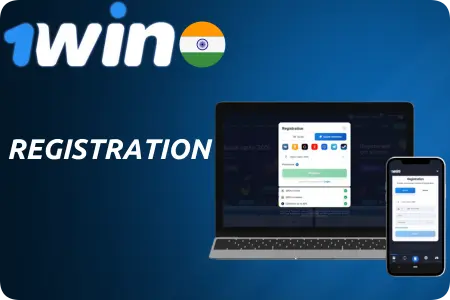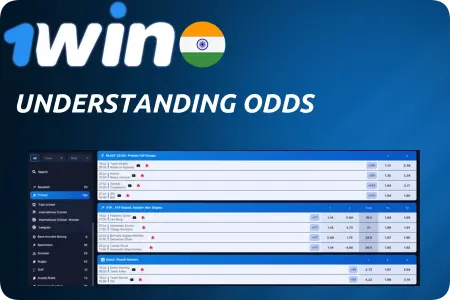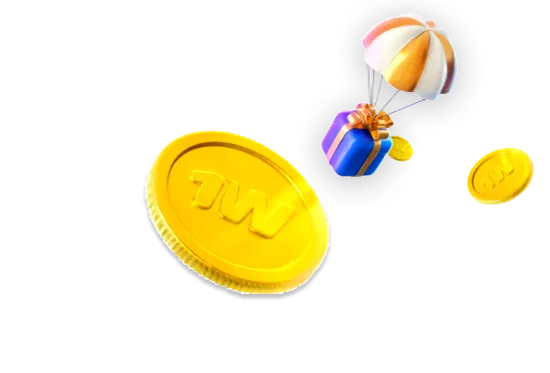1Win India: Company Overview
1Win has carved its niche as a premier online betting platform, not just in India but on a global scale. With its roots going deep into the betting industry, the platform has consistently prioritized user experience, offering a plethora of options to its users.

From sports betting to virtual sports, 1Win’s vast range caters to all kinds of betting enthusiasts. It isn’t just the sheer variety that makes it stand out, but also the commitment to maintaining transparency and security.
The rapid growth of 1Win in India can be attributed to its understanding of the Indian market. Adapting to the needs and preferences of the local audience, the platform offers betting options on popular sports in the country, such as cricket and football.
Another factor contributing to its popularity is the lucrative bonuses and promotions, especially for Indian users. With a special focus on Indian traditions and festivals, 1Win often rolls out region-specific promotions, amplifying its reach and appeal.
Is 1Win Legal and Secure in India?
Online betting in India has witnessed a surge in recent years, with many platforms vying for the attention of the gaming populace. Amidst this, the primary concerns for many are the legality and security of these platforms. 1Win emerges as a prominent player in this domain, not just because of its wide range of offerings but also due to its staunch commitment to legality and safety.
While India’s laws on online betting can be ambiguous, international platforms operating in the country do so within a framework that’s globally recognized and respected. 1Win is no exception, as it conforms to international legal standards while also ensuring a safe environment for its users.
- Legal Framework: 1Win, operated by 1WIN N.V., is registered at Dr. H. Fergusonweg 1, Curaçao, bearing the company number 147039. This international recognition solidifies its standing in the global betting industry.
- Data Protection: Protecting user data is paramount. By leveraging top-notch encryption technologies, 1Win ensures the confidentiality of personal and transactional data.
- Financial Security: MFI INVESTMENTS LIMITED, with its office at 3, Chytron Street, Flat/Office 301, P.C. 1075 Nicosia, Cyprus, ensures seamless payment services for 1Win. Their collaboration ensures that the financial dealings on the platform are both secure and efficient.
- Commitment to Fair Play: Regular audits and stringent checks ensure that all offerings on 1Win are unbiased, ensuring a level playing field for all participants.
Thus, with its adherence to global standards and a laser focus on user security, 1Win emerges as a trustworthy and secure platform for online betting in India. The intricate web of legal regulations and operational transparency is what sets 1Win apart in the crowded online betting market.
Further cementing its credibility is its license and regulatory compliance, particularly in the Indian context, which we will explore in the subsequent section.
1Win’s License and Regulation in India
The foundation of any trustworthy betting platform is its licensing and regulatory adherence. For 1Win, this is an area where it truly shines, boasting a license that’s recognized across the online betting industry. With gaming license 8048/JAZ2018-040, 1Win has all the necessary rights to operate its gaming software, making it a credible platform for betting enthusiasts in India and beyond.
It’s noteworthy to mention that the EU company, MFI Investments Ltd, plays a significant role in enhancing 1Win’s operational efficiency. Acting as an agent, MFI Investments Ltd provides payment services based on the license agreement concluded between itself and 1WIN N.V. This collaboration ensures seamless financial transactions on the platform, further elevating the user experience. Such partnerships and adherence to global licensing standards reflect 1Win’s commitment to offering a legitimate and transparent betting experience to its users.
Signing Up with 1Win India
Joining the 1Win community in India offers a gateway to an exhilarating world of sports betting, casino games, and more. However, before diving into the excitement, understanding the sign-up process is crucial. 1Win India has optimized its registration procedure to be both swift and user-friendly, ensuring that newcomers can easily set up their accounts and start their betting journey.
For those unfamiliar with online betting platforms, the process may seem daunting. Fortunately, 1Win offers a straightforward registration process. Here’s a detailed step-by-step guide to help you navigate it.

- Visit the Official Website: Start by heading to the 1Win official website. The interface is intuitive, leading you to the sign-up option prominently displayed.
- Select “Register”: Click on the ‘Register’ or ‘Sign Up’ button, usually found at the top right corner of the page.
- Fill in the Details: A registration form will appear, asking for basic details such as your name, email address, desired password, and phone number. Ensure all details are accurate to avoid any future complications.
- Choose a Currency: 1Win caters to a global audience, so you’ll have the option to choose your preferred currency. For Indian users, selecting INR (Indian Rupees) would be the most convenient.
- Read and Accept Terms: Before finalizing your registration, take a moment to read through the platform’s terms and conditions. Once you’ve familiarized yourself with them, tick the acceptance box.
- Complete Registration: Click on the ‘Submit’ or ‘Complete Registration’ button. An email with an activation link will be sent to the provided email address.
- Email Verification: Open the email and click on the activation link to verify your account. If you don’t find the email in your inbox, check the spam folder.
With these steps, your account should be set up and ready to go. It’s worth noting that 1Win places a premium on user data protection, ensuring all your personal information remains confidential and secure.
After setting up your account, the next phase is logging in. Whether you’re accessing 1Win from your desktop or mobile, the process remains consistent.
1Win Login Guide
Once registered, accessing your 1Win India account is a seamless process. The platform’s design prioritizes user convenience, making the login procedure straightforward and quick. Whether you’re eager to place a bet, explore the casino offerings, or simply check out the latest promotions, logging into your account is the first step.
Given the platform’s popularity, ensuring that you can access your account with ease is vital. Here’s a breakdown of the login procedure to ensure you face no hiccups along the way:

- Head to the Website: Begin by navigating to the 1Win official website. If you’re using a mobile device, ensure you’re either on their mobile-optimized site or the official app.
- Click on “Login”: Locate the ‘Login’ button, typically situated at the top right corner of the homepage. Click on it.
- Enter Credentials: A login window will pop up, prompting you to enter your registered email address and password. Ensure you input the correct details.
- Remember Me Option: If you’re using a personal device, you can tick the ‘Remember Me’ box. This saves your login details for future sessions, ensuring quicker access. However, avoid using this feature on public or shared devices for security reasons.
- Access Your Account: After entering your details, click on the ‘Login’ or ‘Submit’ button. You should now be inside your 1Win account, ready to explore all it has to offer.
- Troubleshooting: In case you face difficulties logging in, click on the ‘Forgot Password’ link. Follow the provided steps to reset your password and regain access to your account.
With these clear-cut steps, accessing your 1Win account becomes a hassle-free process. Always ensure you log out of your account after each session, especially when using shared or public devices, to maintain the security of your account.
Both the registration and login procedures at 1Win are designed keeping the user experience in mind. The platform strives to make these processes as intuitive as possible, ensuring that users, whether they’re novices or seasoned bettors, can navigate with ease.
Welcome Bonuses on 1Win India
One of the standout features of many online betting platforms is the array of enticing bonuses offered, especially to new users. 1Win is no exception in this domain, offering a plethora of lucrative welcome bonuses tailored to cater to both sports enthusiasts and casino aficionados. These bonuses provide a head start for newcomers, allowing them to maximize their initial deposits and elevate their betting experiences.
1Win has strategically crafted its welcome bonus packages to ensure they appeal to a broad spectrum of users. From free bets for sports enthusiasts to generous casino credits, there’s something for everyone. Here’s a detailed breakdown of the welcome bonuses on offer:

- Betting Welcome Bonus: Ideal for those looking to dive into the world of sports betting. This bonus typically matches a percentage of your initial deposit, allowing you to place larger bets and potentially secure more substantial wins. Specific terms and conditions apply.
- Casino Welcome Bonus: For users who lean more towards the glitz and glamour of casino games, 1Win offers a dedicated casino welcome bonus. This bonus is designed to enhance your initial casino gaming sessions, often providing free spins, matched deposits, or both.
- Promotions and Special Offers: Beyond the standard welcome bonuses, 1Win frequently rolls out special promotions. These can range from enhanced odds on specific sports events, cashback offers, and seasonal casino game promotions. Always keep an eye on the promotions page for the latest deals.
- Use of Promo Codes: To unlock certain bonuses, the use of promo codes might be required. For instance, the promo code INDIA1WIN24 offers an impressive 500% on the first 4 deposits, making it a must-use for new sign-ups.
It’s worth noting that all bonuses come with specific wagering requirements. Always peruse the terms and conditions associated with each bonus to understand the requirements and ensure you can meet them before opting in.
Bonuses provide an excellent way to explore the platform, try out different betting strategies, and familiarize oneself with various games without excessively risking one’s bankroll. Now, let’s delve deeper into the specific welcome bonuses on offer.
Betting Welcome Bonus
1Win’s betting welcome bonus is tailored for sports enthusiasts. Recognizing the passion and fervor associated with sports betting in India, this bonus aims to give newcomers an edge, amplifying their initial sports betting sessions. Typically, this involves a percentage match on your first deposit, enabling you to place more substantial bets from the outset.
The exact details of the betting welcome bonus can vary based on promotions and seasons. However, the underlying principle remains consistent: rewarding new users with additional betting power. This not only enhances the user experience but also fosters a sense of appreciation and loyalty towards the platform. Always ensure you enter the relevant promo codes, such as INDIA1WIN24, during your initial deposit to unlock the full potential of this bonus.
Casino Welcome Bonus

For those whose interests lean more towards the vibrant world of casino games, 1Win has crafted a unique casino welcome bonus. This bonus is designed to infuse a sense of excitement and anticipation into your initial casino adventures. Whether you’re a fan of classic table games, slots, or live dealer interactions, the casino welcome bonus ensures you start on a high note.
Similar to the betting welcome bonus, the specifics of the casino welcome bonus might fluctuate based on current promotions. This could involve a mix of free spins on select slots, matched deposit amounts, or even access to exclusive casino tournaments. As always, it’s paramount to read the associated terms and conditions and ensure you meet the wagering requirements to fully benefit from this bonus.
1Win India Promo Code

Online betting platforms often utilize promo codes to offer exclusive deals, discounts, and bonuses. 1Win India takes this tradition to the next level, offering some of the most lucrative promotions through its exclusive promo codes. One such code that deserves special mention is INDIA1WIN24. This powerful code, specifically tailored for Indian users, unlocks a staggering 500% bonus on the first 4 deposits, setting a benchmark in terms of generosity.
It’s essential for users to keep an eye on 1Win’s promotional pages and affiliated partners. This proactive approach ensures that bettors and casino enthusiasts are always up-to-date with the latest promo codes, maximizing their betting potential and overall experience on the platform.
1Win India on Mobile
In today’s fast-paced world, the ability to bet on-the-go is not just a luxury but a necessity. Recognizing this shift in user behavior, 1Win has invested significantly in its mobile capabilities, ensuring a seamless betting experience across various devices. Whether you’re waiting in line, commuting, or lounging at a café, with 1Win’s mobile features, the action never stops.
1Win’s mobile experience is a perfect blend of simplicity, efficiency, and elegance. Designed with the user in mind, everything from navigation to placing a bet has been optimized for smaller screens without compromising on features or security. Let’s explore the nuances of this mobile experience in more detail:

- Mobile Website: 1Win’s mobile website is a masterpiece of responsive design. It adjusts perfectly to different screen sizes, ensuring that users have an optimal viewing experience irrespective of their device. The mobile site retains all the features of the desktop version but with a more streamlined design for quicker access and easier navigation.
- 1Win Mobile App: For those seeking a more dedicated mobile experience, 1Win offers its official app. This application, available for both Android and iOS platforms, provides a more integrated experience, with push notifications for live match updates, quick deposit methods, and more. It’s the perfect companion for those who don’t want to miss a single moment of the action.
- User Experience: Whether you choose to use the mobile website or the dedicated app, the user experience remains top-notch. Fluid animations, intuitive menus, and a clean design ethos ensure that even newcomers can navigate the platform with ease. Betting slips are easily accessible, live updates are a tap away, and the entire platform exudes a sense of professionalism.
- Live Streaming: One of the standout features on the mobile platform is the live streaming capability. Users can watch their favorite sports in real-time, place in-play bets, and immerse themselves fully in the world of sports betting, all from the palm of their hand.
- Security: Mobile betting raises valid concerns about security. With 1Win, these worries are alleviated thanks to advanced encryption techniques, secure payment gateways, and regular audits. Whether you’re betting on your desktop or mobile, 1Win ensures your data and funds are always protected.
1Win’s commitment to offering a flawless mobile experience is evident in every facet of its mobile offerings. It’s clear that the company understands the evolving demands of modern bettors, delivering a platform that is both feature-rich and easy to use. For those yet to explore 1Win India on mobile, now is the perfect time to dive in and enjoy the convenience and flexibility it offers.
Android App for 1Win India
With the increasing dominance of Android devices in the global market, 1Win has ensured that its vast audience has access to a top-tier betting experience tailored for this platform. The 1Win Android app is meticulously designed, keeping in mind the diverse range of Android devices and their specifications. It offers a rich, immersive, and smooth betting experience for users.
The Android app isn’t just a mere replication of the website. Instead, it’s a refined version with features optimized for mobile touchpoints, ensuring quick navigation and efficient bet placements. Here’s an in-depth exploration:

- Installation Process: As Google Play Store has restrictions on real-money gambling apps, the 1Win app for Android is available directly from their official website. Users can easily download the APK file and follow simple installation instructions to get started.
- Interface: The app boasts a user-friendly interface with intuitive touch controls, making it easier for bettors to navigate through various sports, leagues, and casino games. Every section is just a tap away.
- Live Betting: One of the most exciting features is live in-play betting, allowing users to place bets in real-time as the action unfolds. The app ensures that live odds are updated promptly, and users receive instant notifications.
- Payment Methods: The Android app supports a wide array of payment options, ensuring users have flexibility and convenience in managing their bankrolls.
- Performance and Stability: 1Win’s Android app is optimized for performance, ensuring smooth gameplay, quick load times, and stability even during high-traffic periods.
It’s evident that the 1Win Android app provides a premier betting experience, with features and functionalities that cater to both novice and experienced bettors. By maintaining a consistent user experience across devices, 1Win continues to strengthen its foothold in the market.
iOS App for 1Win India
1Win acknowledges the significance of the iOS ecosystem in the betting arena. Catering to iPhone and iPad users, the 1Win iOS app offers a blend of aesthetics, functionality, and user-centric features. This app provides Apple device users with a seamless and engaging betting experience on the go.
The iOS app stands out, not just in its design but in its overall user experience. It capitalizes on the strengths of the iOS platform to deliver a fast, fluid, and reliable betting environment. Let’s delve deeper into its specifics:

- Installation Process: Unlike Android, iOS users can easily find and download the 1Win app from the Apple App Store. The app complies with Apple’s stringent guidelines, ensuring it’s safe, secure, and user-friendly.
- Design Aesthetics: The iOS app showcases a sleek and modern design, with high-resolution graphics and animations optimized for Retina displays. The overall color palette and design elements resonate with 1Win’s branding, ensuring a cohesive experience across platforms.
- Touch ID and Face ID: One standout feature is the integration of Apple’s biometric authentication methods, like Touch ID and Face ID. This adds an extra layer of security while ensuring quick access to the app.
- Live Streaming: iOS users can enjoy live streaming of their favorite sports and events. With crisp video quality and minimal lag, the live streaming feature enhances the in-play betting experience manifold.
- Customer Support: The app has an integrated chat support feature, allowing users to connect with the customer support team in real-time, right from the app. This ensures that any queries or issues are addressed promptly.
Through the iOS app, 1Win further cements its commitment to providing a top-notch betting experience for all its users, regardless of their device preference. With its robust features and attention to detail, the app is a must-have for any iOS user looking to explore the thrilling world of online betting.
Deposit and Withdrawal Options on 1Win
1Win understands the importance of offering a plethora of financial options to its users. The multitude of deposit and withdrawal methods available reflects their commitment to ensuring smooth and swift transactions. This ensures that users can focus solely on their betting and gaming experiences without worrying about financial hurdles.
Whether it’s the global reach of major credit cards or the localized convenience of certain e-wallets, 1Win has endeavored to cover a broad spectrum of payment solutions. Their emphasis on security means each transaction is processed with the utmost care and the highest level of encryption.
Here’s a tabulated breakdown of some of the key deposit and withdrawal options available on the platform:
| Method | Processing Time | Limits |
| Visa/MasterCard | Instant | ₹800 – ₹200,000 |
| Neteller | Instant | ₹800 – ₹165,000 |
| Skrill | Instant | ₹800 – ₹165,000 |
| UPI | 1-2 hours | ₹500 – ₹50,000 |
| PayTM | 1-2 hours | ₹500 – ₹50,000 |
| Bank Transfer | 1-3 days | Varies |
The above table showcases just a glimpse of the available options. Each method has been incorporated keeping in mind the varied needs of the global user base. It’s always recommended to check the official site for the most updated and comprehensive list of payment methods.
Additionally, while the deposits are usually instant, withdrawal times might vary based on the method chosen and the user’s bank or financial institution. Always ensure to verify your account to facilitate seamless withdrawals.
Navigating the Official 1Win India Website
The 1Win website is a blend of modern design aesthetics and user-centric navigation elements. Designed with both newcomers and seasoned bettors in mind, every section of the site is easily accessible, ensuring that users can find what they’re looking for with minimal clicks.
Let’s embark on a guided tour of the key sections and features of the 1Win India website:

- Homepage: Upon entering the site, users are greeted with a clean layout showcasing featured events, top games, and current promotions. The dynamic banners offer a peek into the latest offers and tournaments.
- Sportsbook: Clicking on the ‘Sports’ tab unveils a vast array of sports and events available for betting. From cricket and football to niche sports, the categorization is intuitive, and the live betting section is prominently featured.
- Casino: The ‘Casino’ section is a paradise for gaming enthusiasts. With a multitude of slots, table games, and live dealer games, users can filter by providers or search for specific titles. The gameplay is smooth, with high-quality graphics ensuring an immersive experience.
- Account Dashboard: Accessible after logging in, this section allows users to manage their profiles, track their betting history, set preferences, and handle financial transactions. The design ensures that even newcomers can navigate effortlessly.
- Promotions: A dedicated ‘Promotions’ tab highlights the current bonuses, offers, and tournaments. Users can quickly glance through the terms and participate with ease.
1Win’s commitment to user experience is evident in the intuitive layout of their site. Every element, from fonts to colors, has been chosen to ensure readability and ease of navigation. Regardless of whether users access the site for the first time or the hundredth, the journey remains consistently delightful.
The integration of user feedback ensures the site remains up-to-date with the latest usability trends. Regular updates, combined with responsive design principles, mean the 1Win website is accessible and optimized across devices and screen sizes.
Website Design and User Experience
The digital world thrives on user experience and design, and 1Win’s platform is no exception. Through a combination of intuitive design and user-centric functionalities, 1Win India ensures that its users enjoy a seamless online betting experience.
The aesthetically pleasing design of the website complements its functionality, making it a breeze for users to navigate and find what they’re looking for without being overwhelmed by unnecessary clutter.
- Minimalistic Design: 1Win’s website boasts a clean and minimalistic design, utilizing a combination of muted and vibrant colors. This design choice ensures that the focus remains on the content, be it sports events, casino games, or promotional offers.
- Intuitive Navigation: The website’s layout is structured to facilitate easy navigation. Key sections such as sportsbook, casino, and promotions are prominently displayed at the top, ensuring quick access.
- Responsive Layout: Recognizing the increasing use of mobile devices for online gaming, 1Win’s website is built with a responsive design. This ensures that users get a consistent experience across devices, be it desktops, tablets, or smartphones.
- Search and Filter: With a vast array of games and betting options, the integrated search and filter functions come in handy. Users can quickly locate specific games, events, or leagues with ease.
- Interactive Elements: The use of dynamic banners, sliders, and animated graphics adds an element of interactivity, making the user’s journey engaging and visually appealing.
Overall, the emphasis on user experience is evident in every aspect of the website’s design. From loading speeds to the arrangement of elements, every decision has been made with the end-user in mind, ensuring a hassle-free and enjoyable online betting journey.
Sports Betting on 1Win India
1Win India stands tall as a premier destination for sports enthusiasts and bettors alike. Their sportsbook offers an expansive range of sports, leagues, and events, catering to both mainstream sports aficionados and niche sports enthusiasts.
With a commitment to offering the best odds and a vast selection of betting markets, 1Win India has managed to carve a niche for itself in the crowded online betting space. The platform’s emphasis on transparency, user experience, and security ensures that bettors can focus solely on their game without any distractions.
- Comprehensive Sports Range: From globally acclaimed sports like football, cricket, and tennis to regional favorites and niche sports, 1Win’s sportsbook covers an extensive range. This ensures that there’s something for every sports enthusiast on the platform.
- Live Betting: For those who thrive on the adrenaline of in-play action, 1Win offers a robust live betting section. With real-time stats, live streams, and dynamic odds, bettors can make informed decisions and capitalize on the ever-changing dynamics of live events.
- Competitive Odds: 1Win prides itself on offering some of the best odds in the industry. By constantly monitoring the market and adjusting their odds, they ensure that users get maximum value for their bets.
- Varied Betting Markets: Beyond the standard win/lose bets, 1Win offers a plethora of betting markets for each event. From handicaps to player-specific bets and event outcomes, the options are vast and cater to both novice bettors and seasoned professionals.
- Events and Tournaments: 1Win ensures that their sportsbook remains up-to-date with the latest events and tournaments. Whether it’s the FIFA World Cup, the IPL, Wimbledon, or a regional league, bettors can find ample betting opportunities on the platform.
1Win’s dedication to providing a world-class sports betting experience is evident in its offerings. With user-friendly features, a vast array of betting options, and a commitment to security, it’s no wonder that the platform is rapidly becoming a favorite among Indian sports betting enthusiasts.
Cricket Betting
Cricket, the heartbeat of India, has a significant presence on 1Win. The platform offers an unrivaled cricket betting experience, capturing the essence of the sport and its vast fanbase. From international fixtures to premier leagues, every cricket enthusiast and bettor finds their desired match on 1Win.

- Extensive Match Coverage: 1Win covers every significant cricket event globally. Whether it’s the ICC World Cup, T20 internationals, or test matches, you’ll find them all listed. Moreover, for fans of domestic cricket, leagues like the IPL, Big Bash, and the Caribbean Premier League are also featured prominently.
- Varied Betting Markets: Beyond the traditional match-winner bets, 1Win offers a plethora of cricket-specific markets. From predicting the top run-scorer, number of boundaries, method of the first wicket, to player match-ups, the diversity of options ensures that bettors have a comprehensive betting experience.
- Live Betting: The excitement of cricket amplifies with live action. 1Win’s in-play cricket betting allows users to bet as the match unfolds, with dynamic odds reflecting the on-ground situation. It’s not just about predicting the winner but also diving deep into ball-by-ball action.
- Stats and Insights: To assist bettors in making informed decisions, 1Win provides a detailed statistics section. This comprises player forms, head-to-head comparisons, and other crucial metrics pivotal for placing successful bets.
- Stream and Bet: For selected matches, 1Win offers live streaming services. This ensures that bettors can watch the game and make real-time betting decisions simultaneously, enhancing the overall betting experience.
In a country where cricket is revered, 1Win’s exhaustive cricket betting offerings resonate with fans and bettors, making it a preferred choice for many.
Football Betting
Football, with its global appeal, finds a dedicated space on 1Win. The platform seamlessly integrates the world of football, offering betting options that cater to both seasoned bettors and casual fans. From the English Premier League to the FIFA World Cup, every kick, dribble, and goal can be bet on at 1Win.

- League and Tournament Coverage: Football fans are spoilt for choice on 1Win. The platform covers top leagues such as the English Premier League, La Liga, Serie A, and the Bundesliga. Additionally, international tournaments like the UEFA Champions League, Europa League, and the FIFA World Cup are also available for betting.
- Diverse Betting Markets: The range of football betting markets on 1Win is vast. Users can bet on outcomes like match results, number of goals scored, both teams to score, handicaps, and even specific events like red cards or penalties awarded.
- Live Football Betting: The in-play betting feature for football is a major attraction. As matches progress, bettors can place bets based on the live action, with odds being updated in real-time. This adds an element of strategy and excitement to the betting process.
- Match Previews and Statistics: Before placing a bet, users can access detailed match previews and statistics on 1Win. This includes team forms, player injuries, head-to-head data, and other insightful metrics that can influence betting decisions.
- Expert Tips and Predictions: To further assist bettors, 1Win occasionally offers expert tips and predictions for significant football matches. These insights, coming from seasoned analysts, can provide an edge to those looking to place successful bets.
1Win’s commitment to providing a top-notch football betting experience is evident in its offerings. With a user-centric approach, diverse betting markets, and comprehensive coverage, it stands out as a premier platform for football betting in India.
Formula 1 Betting
Formula 1, the epitome of motorsport racing, takes a lap on 1Win with exhilarating betting options. With the roar of engines, intense rivalry, and split-second decisions, F1 provides a unique thrill. 1Win ensures that fans can be a part of this adrenaline-filled sport from a betting perspective too.

- Race Winner Bets: At its core, every F1 enthusiast has a prediction about which driver will finish first. 1Win offers odds on each driver, allowing bettors to back their favorite or go with the underdog for higher returns.
- Podium Finish: Instead of just betting on the race winner, one can also predict drivers who’ll make it to the podium. This bet provides a wider margin and a higher probability of success.
- Fastest Lap: The thrill of speed is inherent to F1. Betting on the driver who will clock the fastest lap during the race captures this essence perfectly.
- Driver Match-ups: 1Win often pairs two drivers, allowing bettors to predict which of them will finish higher. This bet type provides a unique twist, especially when the paired drivers have a storied rivalry.
- Constructors’ Championship: Beyond individual drivers, the battle of the car manufacturers or teams adds another dimension to F1. Predicting which team will emerge victorious in the Constructors’ Championship offers a season-long engagement.
Formula 1 betting on 1Win is an immersive experience, mirroring the twists and turns of a race, ensuring that motorsport enthusiasts are always on the edge of their seats.
MMA Betting
Mixed Martial Arts (MMA) has rapidly grown in popularity worldwide, and 1Win ensures fans are not left out of the action. Offering diverse betting options on MMA, especially on prominent organizations like the UFC, 1Win caters to both seasoned bettors and those new to the sport.

- Fight Winner: The most straightforward bet in MMA is predicting the fight winner. With extensive research on fighters and their styles, one can make informed decisions and place bets accordingly on 1Win.
- Method of Victory: MMA is unpredictable. Fights can end via knockout, submission, or decision. Betting on the method of victory adds depth to the betting experience.
- Round Betting: Predicting the exact round in which a fight will conclude is challenging yet rewarding. 1Win offers enticing odds for such precise predictions.
- Over/Under Rounds: Instead of predicting the exact round, one can bet on whether a fight will last over or under a certain number of rounds. This type of bet allows a bit more leeway in predictions.
- Prop Bets: These are specialty bets that can range from predicting if a fight goes the distance, if a fighter lands a specific move, or even if there’ll be a disqualification. They add an element of fun and intrigue to MMA betting.
1Win’s MMA betting platform provides depth, variety, and the thrill that the sport inherently possesses, making it a favorite destination for many MMA enthusiasts.
Tennis Betting
The graceful volleys, intense baseline rallies, and nail-biting tiebreakers make tennis one of the most loved sports globally. Betting on tennis with 1Win takes this passion to another level, offering a range of options for fans to get closer to the action on both the ATP and WTA circuits.

- Match Betting: The heart and soul of tennis betting. Simply choose which player you believe will win the match. 1Win offers competitive odds for each player, taking into account form, head-to-head stats, and surface preferences.
- Set Betting: Delve deeper into a match by predicting the exact score in sets. Whether you think it’ll be a straight-set win or a five-set marathon, there’s a bet waiting for you.
- Total Games: Without picking a winner, you can bet on the total number of games played in a match, usually presented as an over/under option.
- First Set Winner: Sometimes, early momentum is everything. Predict who starts off on the right foot with this bet.
- Tournament Winner: Have a favorite for Wimbledon or the US Open? This long-term bet lets you pick the tournament victor.
With in-play betting and numerous markets available, 1Win’s tennis betting offers a comprehensive experience, capturing the sport’s dynamics and drama.
E-Sports Betting with 1Win India
In an era where digital takes the lead, e-sports have seen meteoric growth in popularity and engagement. Recognizing this trend, 1Win India provides a robust platform for e-sports enthusiasts to bet on major tournaments and leagues across the globe, ranging from first-person shooters to real-time strategy games.

1Win’s e-sports betting platform is intuitive, offering live streams, real-time odds adjustments, and a plethora of betting options tailored to the unique nature of e-sports competitions. Whether you’re an avid gamer or just exploring the world of e-sports betting, 1Win ensures an unmatched experience.
- Match Winner: The basic yet most popular e-sports bet. Choose the team or player you believe will emerge victorious in a given matchup.
- First Blood/First Kill: In many games, the first elimination can set the tone. Predict which team gets the first kill to add excitement to the game’s beginning.
- Map Winner: In multi-map games, this bet allows you to predict the winner of a specific map, rather than the entire match.
- Total Kills: Without favoring a particular side, bet on the total number of eliminations in a game or map. Often, this is presented as an over/under bet.
- Tournament Winner: Dive into the bigger picture by selecting the team you think will clinch the championship in major tournaments.
E-sports is more than just gaming; it’s a blend of strategy, skill, and teamwork. By offering a myriad of betting options on global e-sports events, 1Win ensures fans are always part of the electrifying action, bringing the digital arena to life.
Virtual Sports Betting
Virtual Sports Betting offers a unique blend of traditional sportsbook betting and online gaming, producing a non-stop wagering experience available 24/7. With simulations based on real sports, 1Win’s virtual sports platform bridges the gap between real-world sports events and the digital realm.
Even when the live sports calendar is sparse, virtual sports on 1Win keep the action flowing, ensuring that punters are never short of betting opportunities. Let’s uncover the spectrum of virtual sports offerings available on the platform.
- Virtual Football: Experience the thrill of football matches condensed into mere minutes, with multiple fixtures in an hour and rapid outcomes.
- Virtual Horse Racing: Horse racing enthusiasts can revel in continuous races, complete with stunning graphics and commentary.
- Virtual Tennis: Savor the essence of tennis matches that are not only quick but also packed with action from the first serve to match point.
- Virtual Greyhounds: Witness sleek greyhounds race around tracks, emulating the excitement of the real-world counterpart.
- Virtual Motorsports: Feel the adrenaline of high-speed races in a variety of terrains and conditions, capturing the essence of motorsports.
The virtual sports universe on 1Win provides an immersive experience, bolstered by state-of-the-art graphics, genuine sound effects, and fair, random outcomes generated by sophisticated algorithms.
Live Betting and In-Play Features
1Win’s live betting platform redefines sports wagering, allowing punters to place bets on events as they unfold in real-time. With dynamic odds that change based on the live action, in-play betting amplifies the excitement manifold, making every moment of the game crucial.
From the initial whistle to the last-minute drama, live betting on 1Win keeps bettors on the edge of their seats. It’s more than just predicting outcomes; it’s about gauging the ebb and flow of the match, understanding the strategies, and making informed decisions based on live scenarios.
The in-play feature doesn’t just offer a novel way to bet but also equips bettors with a plethora of tools and stats to make well-informed decisions. Let’s dive into the core features that enhance the live betting experience on 1Win:

- Live Match Streaming: Not all platforms offer the privilege of watching the match you’re betting on. With 1Win, you can simultaneously watch and bet on selected events, ensuring you’re always in tune with the action.
- Real-time Stats: A comprehensive statistics dashboard keeps you updated with crucial match data, from possession stats in football to aces in tennis.
- Dynamic Odds: The odds are alive, changing with every pass, goal, or wicket, offering new opportunities at every twist and turn of the game.
- Cash Out Feature: This feature grants bettors the autonomy to withdraw a bet before the event’s conclusion, either locking in a profit or cutting a loss based on the live scenario.
The essence of live betting on 1Win lies in its ability to transport bettors right into the heart of the action, creating a fusion of strategy, intuition, and real-time decision-making. With the multitude of tools and features at their disposal, punters can elevate their in-play betting game, turning every live event into an adrenaline-packed wagering experience.
Types of Bets Available on 1Win India
1Win offers a rich palette of betting options catering to both novices and seasoned punters. This diversity ensures that everyone finds a betting type that aligns with their strategy and risk appetite. The platform’s commitment to delivering an extensive betting experience is evident in its broad array of wagering options.
The myriad of bet types not only adds layers to the betting experience but also empowers bettors to harness their sports knowledge and intuition in various ways. Here’s an exploration of the types of bets that one can indulge in:
- Single Bet: This is the most straightforward type of bet where you predict the outcome of a single event. Win or lose – it’s all riding on one prediction.
- Accumulator Bet (or Parlay): Multiple bets are combined into one. All selections must win for the accumulator to be successful.
- System Bet: This allows you to place several parlays at once. Depending on the system, even if one or more selections fail, you can still win.
- Handicap Bet: Teams are handicapped according to their form, leveling the playing field and making the bet more intriguing.
- Over/Under Bet: Predict whether the total number of points or goals will be over or under a specified number.
- Both Teams to Score: A simple yes or no bet on whether both teams will score in a match.
- Correct Score: Predict the exact score of a match – a challenging but potentially lucrative bet.
- Live Betting: Place bets in real-time as the action unfolds, with dynamic odds that change with the game’s progression.
The above types are just the tip of the iceberg. 1Win’s commitment to enhancing the betting experience means bettors can expect even more specialized and unique bet types tailored for various sports and events. The platform’s intuitive interface ensures that selecting and placing these bets is a breeze, even for newcomers to the betting realm.
With 1Win, every sport and every match becomes a canvas of opportunities, allowing bettors to paint their predictions in myriad ways. The key lies in understanding each bet type, strategizing effectively, and leveraging them in sync with the dynamics of the sport in question.
Placing a Bet with 1Win India
1Win has masterfully crafted a seamless betting process, ensuring both efficiency and user-friendliness. Whether you’re a seasoned pro or a newbie taking your first steps, placing a bet with 1Win is both intuitive and straightforward. Let’s walk through the steps involved in getting your wager on:
- Log In: Access your 1Win account using your credentials. If you’re new, registration is a quick process.
- Select a Sport: Navigate to the sports section and choose from a plethora of available events and matches.
- Pick Your Bet Type: Based on your strategy and intuition, decide on the type of bet you want to place.
- Set Your Stake: Decide on the amount you’re willing to wager. Always bet within your limits and practice responsible betting.
- Confirm Your Bet: Review your selections and stake. Once satisfied, confirm your bet. An electronic bet slip will be generated, outlining your selections and potential returns.
The essence of 1Win’s betting procedure is its simplicity, merged with a layer of transparency. With just a few clicks, your predictions are locked in, awaiting the unfolding of events. As with any form of betting, it’s always prudent to research, strategize, and bet responsibly, optimizing the chances of reaping rewards while enjoying the process.
Understanding 1Win India Betting Odds
Grasping the concept of betting odds is paramount to having a successful wagering experience. In essence, odds represent the likelihood of a particular outcome in an event. 1Win India provides odds that not only reflect the probability of outcomes but also hint at the potential returns on a bet. Here’s a brief breakdown of how to interpret these odds.
On 1Win, odds are typically presented in a decimal format, common in many parts of the world, including Europe. The advantage of decimal odds is their straightforwardness. To calculate potential payouts, simply multiply your stake by the decimal number. For instance, odds of 3.50 on a ₹100 bet would return ₹350 (₹250 profit + your ₹100 stake). The higher the odds, the less likely the event is to occur, but the rewards are consequently higher. Conversely, lower odds indicate a higher likelihood of that outcome but offer lesser returns.
Understanding the odds is the first step in strategic betting. While they are a reflection of perceived probability, it’s always essential to conduct your research, evaluate team or player form, and factor in other variables. A holistic approach ensures that your betting decisions on 1Win are well-informed and not solely based on the numerical odds presented.
Bet Customization Tools
1Win recognizes the dynamic nature of sports betting, where strategies, intuitions, and decisions evolve constantly. To accommodate this, the platform has equipped punters with an assortment of bet customization tools. These not only enhance user experience but also provide a more personalized approach to betting. Let’s delve into the specifics:

- Bet Builder: A tool that revolutionizes traditional betting. With the Bet Builder, you can combine multiple bets from a single event into one wager. This means that within one football match, for instance, you can bet on the first goalscorer, over/under goals, and number of yellow cards, all in one bet slip. This consolidation offers increased odds and maximizes potential returns.
- Cash Out: This provides the bettor with a unique opportunity to withdraw a part or all of their bet before the conclusion of the game. If you feel the tide of the game is turning against your bet, you can use Cash Out to retrieve some of your stakes or profits, allowing you to manage your potential losses or lock in profits.
- Edit Bet: 1Win’s Edit Bet feature is a lifeline for those who’ve had a change of heart. It lets you modify your bets after they’ve been placed but before they’ve been settled. This could be adding a new bet to your bet slip, removing an existing one, or swapping one bet for another. It’s flexibility at its finest.
- Pulse Betting: For those who live for the thrill of the moment, Pulse Betting is designed for you. Place a bet on a goal to be scored in the next 30 seconds, 1 minute, 5 minutes, or 10 minutes of a live match, and if it does, the winnings can be exhilarating.
With such tools in hand, 1Win ensures that every punter, whether a newbie or a seasoned pro, has the means to customize their bets as per their strategy and intuition, making for a deeply engaging and immersive betting experience.
1Win India Casino Offerings
While 1Win India has made a name for itself in the world of sports betting, its casino offerings are equally commendable. Venturing into the 1Win casino is akin to stepping into a world of endless entertainment, replete with a plethora of games catering to every whim and fancy of a casino enthusiast. From the traditional to the contemporary, 1Win’s extensive collection promises endless hours of exhilaration.

- Slots: The slot section at 1Win is vast, boasting an array of themes, paylines, and features. Whether you fancy Egyptian treasures, mystical realms, or classic fruit slots, there’s something for everyone. Partnering with top-notch game providers ensures high-quality graphics, immersive soundtracks, and smooth gameplay.
- Table Games: For those who prefer a strategic challenge, 1Win’s assortment of table games is the perfect destination. Classic games such as Blackjack, Roulette, Baccarat, and Poker are available in various versions, ensuring that traditionalists and innovators alike find their fit.
- Live Casino: Experience the thrill of a real-life casino without leaving your home. With 1Win’s live casino offerings, you can play with real dealers, in real-time, on games ranging from Live Roulette to Live Blackjack. The interactive interface, coupled with high-definition streaming, makes for a genuinely immersive experience.
- Video Poker: A perfect blend of slots and poker, Video Poker at 1Win is for those who want the best of both worlds. With various versions like Deuces Wild and Jacks or Better, there’s never a dull moment.
- Specialty Games: If you’re in the mood for something different, 1Win’s specialty games, including Keno, Bingo, and Scratch Cards, are perfect for a light-hearted gaming session.
It’s evident that 1Win has curated its casino section with the utmost precision, ensuring diversity and quality. The seamless interface, coupled with top-tier games, ensures that every visit to the 1Win casino is an affair to remember.
Poker on 1Win India
The exhilarating world of poker finds a stellar space on 1Win India. Poker, a game of strategy, wit, and skill, has become immensely popular over the years, and 1Win caters to this passion by providing an array of options for both seasoned professionals and new enthusiasts. Let’s break down what poker enthusiasts can expect:
- Variety of Poker Games: 1Win features an extensive range of poker variants, including the globally renowned Texas Hold’em, Omaha, Seven-Card Stud, and more. This ensures players can choose a game that aligns with their skill level and preference.
- Poker Tournaments: The platform hosts regular poker tournaments that range from freerolls, where entry is free, to events with significant buy-ins. These tournaments often come with hefty prize pools, offering an excellent opportunity for players to showcase their skills and earn big.
- Dedicated Poker Rooms: For those who prefer a more intimate setting, 1Win’s dedicated poker rooms provide a space where players can host private games with friends or join tables with varying stake limits.
- Interactive Features: 1Win’s poker interface comes equipped with features like multi-tabling (playing on multiple tables simultaneously), chat options to interact with fellow players, and poker statistics to track and improve your gameplay.
- Learning Resources: For newcomers, 1Win offers comprehensive learning resources, including tutorials, strategies, and tips, ensuring everyone gets a fair shot at mastering the game.
1Win’s commitment to providing a top-notch poker experience is evident through its diverse offerings, ensuring every player, irrespective of their proficiency level, finds a space to play, learn, and thrive.
Live Casino Games
1Win’s live casino section is a spectacle in itself, bringing the authentic feel of a traditional casino right to your screens. With real-time streaming, live dealers, and interactive gameplay, it truly bridges the gap between virtual and physical casino gaming. Here’s what you can anticipate in their live casino segment:

- Range of Games: The live casino section on 1Win is vast and diverse. From classic offerings like Live Blackjack, Live Roulette, and Live Baccarat to more niche games like Dream Catcher and Dragon Tiger, there’s a game for every taste and preference.
- Professional Dealers: What makes the live casino experience truly immersive are the professional and friendly dealers that manage the tables. They not only ensure the game runs smoothly but also engage with players, enhancing the overall gaming experience.
- High-Quality Streaming: 1Win employs advanced technology to ensure that the streaming of live casino games is of the highest quality, free from lags or glitches. The crisp visuals and clear audio ensure players don’t miss out on any aspect of the game.
- Interactive Features: The live casino platform on 1Win is laden with features to boost interactivity. Players can chat with the dealer, get real-time game insights, and even chat with other players, fostering a sense of community.
- Customizable Views: Players can adjust their camera views, opting for a close-up of the roulette wheel, a broader view of the blackjack table, or any other perspective that enhances their gaming experience.
- Game Rules & Tutorials: For those new to certain live casino games, 1Win provides detailed rules and tutorials. This ensures that even beginners can jump into the action with confidence.
- Diverse Betting Limits: The live casino games cater to both high-rollers and those on a budget. With tables having varying minimum and maximum bet limits, every player can find a table that suits their bankroll.
With its immersive interface, diverse game selection, and emphasis on player experience, 1Win’s live casino section stands as a testament to the platform’s dedication to providing an unparalleled gaming experience.
Customer Support at 1Win India
1Win India’s commitment to ensuring a seamless user experience is further solidified by its robust customer support system. Their support is tailored to address any concerns, queries, or issues that users may face, guaranteeing swift resolutions and uninterrupted gameplay.
Whether it’s an inquiry about a game, a payment issue, or simply a request for more information about a promotional offer, 1Win’s support team stands ready to assist. Their professionalism, coupled with a genuine intent to help, makes every interaction worthwhile.
The platform offers multiple avenues for players to reach out, ensuring that assistance is available when needed, through the most convenient means. Here’s a breakdown of the customer support offerings:
- 24/7 Live Chat: Easily accessible from the website or the app, the live chat feature connects users to a support agent in real-time. It’s ideal for immediate resolutions or urgent queries.
- Email Support: Users can send detailed queries or concerns to 1Win’s dedicated support email. While response times may be longer than live chat, the answers are comprehensive and helpful.
- FAQ Section: For common queries or issues, the FAQ section is a treasure trove of information, offering solutions without having to reach out to the support team.
- Phone Support: For those who prefer a more personal touch, 1Win offers phone support where users can speak directly to a customer service representative.
- Social Media Channels: Engage with 1Win on their official social media handles. While primarily used for promotions and announcements, they occasionally address user concerns too.
- Multilingual Support: Catering to India’s diverse linguistic landscape, 1Win provides support in multiple regional languages, ensuring clarity and understanding in every interaction.
1Win’s customer support system is a testament to their user-centric approach, ensuring that players always have the backing they need, anytime, anywhere.
Why Choose 1Win in India
The online betting and gaming landscape in India is vast, with several platforms vying for attention. Amidst this competition, 1Win India has managed to carve a niche for itself, becoming a favored choice for many. But what makes 1Win stand out in the crowded market?
Their deep-rooted understanding of the Indian market ensures that offerings are tailored to cater to local tastes and preferences. This translates into games that resonate, promotions that entice, and a user experience that’s unparalleled.
1Win’s commitment to transparency and integrity means that players can indulge in their favorite games without any reservations. The platform’s licenses, adherence to international standards of fairness, and robust security protocols ensure peace of mind with every bet.
1Win’s deep understanding of the Indian audience, coupled with its commitment to providing a superior gaming experience, makes it a go-to platform for many gaming enthusiasts in the country.



